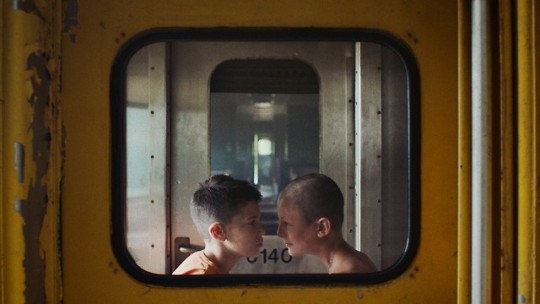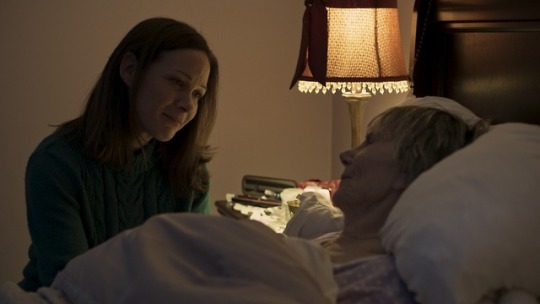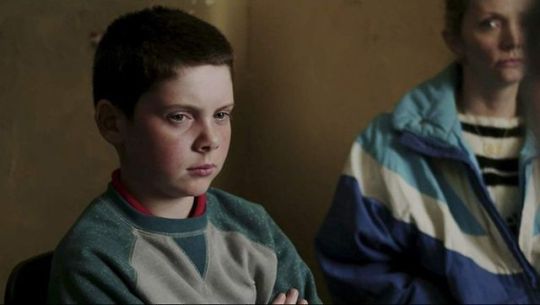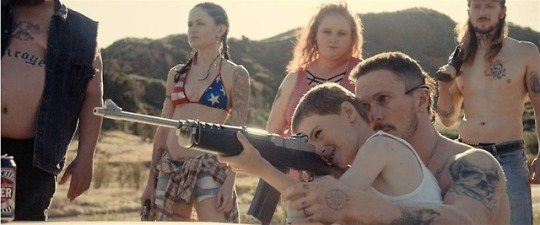#Jeffrey Perreault
Explore tagged Tumblr posts
Photo

Art in the Mind
[First Printing]
description: Exhibition catalogue published in conjunction with show held at the Allen Art Museum, Oberlin College, Ohio, April 17 - May 12, 1970. Introduction by Athena T. Spear. Artists include Vito Acconci, Siah Armajani, Michael Asher, John Baldessari, Robert Barry, Frederick Barthelme, Bill Beckley, Mel Bochner, Jonathan Borofsky, George Brecht, Victor Burgin, Donald Burgy, Ian Burn, Scott Burton, James Lee Byars, Luis Camnitzer, Rosemarie Castoro, Don Celender, Fred Cornell Cone, Christpher Cook, Eduardo Costa, Robert Cumming, Roger Cutforth, Royce Dendler, David Dunlap, David Eisler, Robert Feke, Rafael Ferrer, George Gladstone, Dan Graham, Ira Joel Haber, Richards Jarden, On Kawara, Michael Kirby, Paul Kos, Joseph Kosuth, R. Rexinger Lau, Barry Le Va, Les Levine, Gleen Lewis, Sol LeWitt, Martin Maloney, Bruce McLean, Bruce Nauman, N.E. Thing Co., Ltd., Claes Oldenburg, Saul Ostrow, Paul Pechter, John Perreault, Adrian Piper, Mel Ramsden, Glen Rea, Allen Ruppersberg, Thomas Duncan Shannon, Society for Theoretical Art and Analyses, Marjorie Strider, John Van Saun, Bernar Venet, Jeffrey Wall, William Wegman, Hannah Weiner, Lawrence Weiner, and David Nelson. Includes a range of documents, from drawings and sketches to writing and project proposals and outlines. In black-and-white.
Allen Art Museum, Oberlin College, 1970
45 notes
·
View notes
Text
Books On Books Collection - Buzz Spector
Books On Books Collection – Buzz Spector
With the exception of Unpacking my Library, Spector’s works in the Books On Books Collection fall into the category of ephemera. Unlike much other ephemera such as invitations, broadsides and the like, however, these items have that self-reflexiveness so characteristic of book art.
The Book Made Art (1986)


The Book Made Art: A Selection of Contemporary Artists’ Books, exhibited in the…
View On WordPress
#Betsy Davids#Bruce Nauman#Buzz Spector#Cerith Wyn Evans#Dennis Oppenheim#Didier Mutel#Ed Ruscha#Eric Zboya#Jasper Johns#Jeffrey Abt#Jim Petrillo#John Baldessari#John Keats#John Perreault#Lucy Lippard#Marcel Broodthaers#Margaret Wharton#Michael Kostiuk#Michalis Pichler#Mystery Book Artist of Edinburgh#Paul Holdengräber#Randall Jarrell#Sol Lewitt#Stéphane Mallarmé#Thomas Wightman#Todd Alden#W.H. Auden#Walter Benjamin#Walter Hamady#William Blake
1 note
·
View note
Photo

@MarcSerreMP supports M105 Calling #CdnGov 2Lead Support of #ALS Research @AdaptiveCanuck @Canada @liberal_party @HealthCanada @ALSCanada @GreaterSudbury @NDP_HQ @CPC_HQ MP Serré supports M-105, a motion calling on the federal government to play a leadership role supporting ALS research, and to find a cure for ALS at the earliest opportunity…
#ALS Adaptive Canuck Foundation#ALS research#Amyotrophic Lateral Sclerosis#Canadian ALS research#Canadian health issues#canadians#Canadians living with ALS#Canadians with ALS#Federal government#greater Sudbury#Honourable Mauril Bélanger#House of Commons#Jeffrey Perreault#M-105#Marc Serré Member of Parliament for Nickel Belt#MP Ottawa—Vanier#MP Serré#northern ontario daily news#northern ontario daily newspaper#northern ontario health care#Northern Ontario health issues#Northern Ontario MP#northern ontario news#Private Members Motion
0 notes
Photo





Best Live Action Short Film Nominees for the 91st Academy Awards (2019, listed in order of appearance in the shorts package)
At the Academy Awards, Best Documentary Short Film and Live Action Short Film usually trade off for being the most depressing of the three short film categories. This year (and I understand this is being posted later than usual), there was no let-up in Live Action Short Film. There typically is at least one comedic short in this category, but one suspects the animation and short film branch of the Academy (which votes to nominate this category) was in no laughing mood this year. Here are the nominees:
Madre (2017, Spain)
Shortly before working on his Goya Award-winning film The Realm, Spanish filmmaker Rodrigo Sorogoyen pieced together Madre (“mother” in English) – which he is hoping to adapt into a feature film soon. The film is any parent’s nightmare. Marta (Marta Nieto) is the mother to six-year-old Iván (voiced by Álvaro Balas). Just after entering her apartment with her own mother (Blanca Apilánez), she receives a phone call from Iván – who has been spending a vacation with Marta’s ex-husband somewhere in southern France. Iván sounds panicked; his father is nowhere to be found and he is one a beach with no one in sight. Marta tells Iván – who does not know whether he is in France or Spain – to remain calm as her mother calls the police.
Madre begins innocuously, building into Marta’s fully justified panic as the situation intensifies, the battery on Iván’s phone drains, and certain unknown elements are never answered. Sorogoyen’s film begins and ends with an ambiguous pan across a shoreline at dusk – between the bookending shots is an uncut take of at least fifteen minutes showing Marta and her mother pacing about her apartment squabbling amongst each other, later experiencing absolute terror for Iván. The camerawork and lack of cuts is impressive, but Sorogoyen does not use the apartment setting well, as it seems the camera too often is unsure where to drift next during the action. That Madre remains engaging once the audience learns something is amiss is an incredible achievement, but the poor framing and awkward transition in the final moments dilute the impact.
My rating: 7.5/10
Fauve (2018, Canada)
Shot near Thetford Mines in Québec, Jérémy Comte’s Fauve won the Special Jury Prize at the 2018 Sundance Film Festival and an Honorable Mention for Best Canadian Short Film from the 2018 Toronto International Film Festival (TIFF). Here,Tyler (Félix Grenier) and Benjamin (Alexandre Perreault) are spending one overcast afternoon playing in places far off from home. They are keeping score on how many times they have misled the other – physically, psychologically, and especially verbally. Their play brings them to a mine that is not quite abandoned, as they descend into what appears to be an asbestos pit. One of the misleading pranks goes horribly wrong – a day that began innocently turns to tragedy.
Superb child performances cannot save Fauve’s screenplay (by Comte) from saying much of anything. The film captures the recklessness of boyhood that sprouts – for other boys to see, for everyone else to find for themselves later – just before one’s teenage years. Amid an expanse of grays, we see how damaging the one-upmanship can be when left unsupervised, without the guidance and wisdom of adults or older children who know better. The film’s most visible plot device – which, ostensibly, appears twice in the film (the first time is off-screen) – is employed with zero nuance the second instance it is invoked. Tyler and Benjamin’s story comes to fruition because of their shared fatal flaws. But Fauve never deepens our understanding beyond those flaws – severing a sterling opportunity to empathize with the boys even after their litany of terrible decisions.
My rating: 7/10
Marguerite (2017, Canada)
Director Marianne Farley is primarily an actor in Canadian films and television and she directs her second short film in Marguerite. The film, which has made the film festival rounds in North America and Europe, centers on the elderly Marguerite (Béatrice Picard, who will be ninety years old in July) and her days in which she is being tended to by in-home nurse Rachel (Sandrine Bisson). Marguerite has trouble moving around the house, speaks of no friends or family. Her interactions with Rachel are the only moments of lightness and sociability she displays. If Marguerite has shared little of herself in the past, it would be no surprise. For it is Rachel’s presence – and who she is – that helps Marguerite to open up about something she has held secret for all her life. Marguerite, in her youth, was attracted to women at a time when being out as queer would have ruined her wellbeing.
Marguerite never overplays its hand – it does not shamelessly aim for the tear ducts, nor does it make Marguerite’s sexuality the only interesting thing about her. Picard plays Marguerite as a woman nearing the twilight of her time on Earth, often wearing a distant gaze, as if reaching into a lifetime of memories and lessons learned. Bisson, as Rachel, intuits what suffering this older woman has gone through and how the heartbreak of never living as oneself has been processed over decades of self-denial and silence. The warm colors of Marguerite’s residence make her home feel lived in – an effect that desaturation or a drab, white- and gray-dominated household would have prevented. Farley’s second film is economical and deeply sensitive. It makes its statements about being oneself with quiet grace.
My rating: 8.5/10
Detainment (2018)
From Ireland comes a short film singed by the hot coals of controversy. Vincent Lambe’s Detainment is based on the interview transcripts of the two 10-year-old Liverpudlian children who murdered two-year-old James Bulger in February 1993 (several transcripts were never released to the jury, as they were deemed too distressing). Denise Fergus, Bulger’s mother, has denounced the film for not consulting with her or the family. Lambe was not required to attain the family’s permission, but the film carries with it the baggage of potential exploitation. That controversy aside, Detainment feels exploitative. Jon Venables (Ely Sloan) and Robert Thompson (Leon Hughes), having been arrested on suspicion for murdering Bulger, are in separate interrogation rooms with their parents (and, the movie never makes this clear, hopefully their lawyers) taking questions. A prisoner’s dilemma takes root, as narrative inconsistencies during the two interviews are picked apart, revealing how dark childhood cruelty can be.
But Detainment does little outside of that. Sloan and Hughes’ respective performances never change gears – denial and blame-shifting, defensive and utterly fearful. The poor performances hinder a fascinating concept, turning intrigue into ghastly manipulation. Slow-motion flashbacks to showcase the crime wreck the film’s pacing; the hand-held camera throughout displays little variation in framing. An abhorrent moment has inspired a poor film, with questions lingering over whether this film should have been made at all.
My rating: 5/10
Skin (2018)
Not to be confused with Guy Nattiv’s feature-length film of the same name (and also released in 2018), Nattiv’s short film Skin is a shocking commentary on racial relations that – in a year where Green Book won the Academy Award for Best Picture – also approaches white-black relations from its white characters, caricaturing some of the black characters found within. A young child named Troy (Jackson Robert Scott, whose character of Georgie was killed in the opening minutes of 2017′s It) is the son of skinheads. Father Jeffrey (Jonathan Tucker) and mother Christa (Danielle Macdonald) regularly listen to skinhead metal and shoot firearms with their fellow skinhead friends. One day at the grocery store, a black man namd Jaydee (Ashley Thomas) mimes a toy superhero’s movements for Troy at the checkout line. Jeffrey believes Jaydee has been, “fucking with [his] kid”, and proceeds – along with his skinhead friends – to spew racial epithets and assault Jaydee right in front of his awaiting family.
But a faceless black gang will capture Jeffrey and give him his comeuppance. Skin attempts to argue how acts of hatred influence the children that witness them. But treating its black characters as an “other” – especially how the gang is depicted – undermine the message. Yes, Skin is adopting a child’s point of view. The problem with that argument is that Troy’s racial attitudes have not been solidified yet; Nattiv and co-screenwriter Sharon Maymon impose the parental perspective onto Troy. There is a tonal, developmental, and ideological disconnect that plagues the movie from that moment Troy and his friends bloody Jaydee in the grocery store’s parking lot. A promising premise is weakened by imposing the adults’ lens on a child not even close to finalizing what he will be and what he believes.
My rating: 7/10
^ Based on my personal imdb rating. Half-points are always rounded down. My interpretation of that ratings system can be found here.
From previous years: 85th Academy Awards (2013), 87th (2015), 88th (2016), 89th (2017), and 90th (2018).
#Madre#Fauve#Marguerite#Detainment#Skin#Rodrigo Sorogoyen#Jeremy Comte#Marianne Farley#Vincent Lambe#Guy Nattiv#My Movie Odyssey
0 notes
Text
2019 OSCAR PREDICTIONS: BEST LIVE ACTION SHORT
BEST LIVE ACTION SHORT:
· DETAINMENT
In 1993, 3-year-old James Bulger was taken form a shopping centre by 2 ten-year-old boys, who tortured and beat him to death and left his body on a track, where he as split in two by an oncoming train. It was considered one of England’s most horrific murders which in turn lead to murderers Jon Venables and Robert Thompson being the youngest convicted murderers of the 20th century.
Writer/director Vincent Lambe draws from Interview transcripts and recordings to reenact the detainment and interrogation of Jon and Robert in his nominated entry Detainment. What’s interesting is how different their reactions are. Jon (Ely Solan) is in tears, denying he was even at the shopping centre when James was taken. The blank faced Robert (Leon Hughes) is more hostile and accusatory. But as their alibis fall apart, they try to find any means of denying their crimes, going as far as accusing each other of the act. But they couldn’t hide the truth forever.
Solan and Hughes both deliver very emotional performances that leave you conflicted by your feelings. You feel particularly sorry for Jon as he breaks down in tears. But you remember he’s still responsible for the brutal murder of a child. Also powerful are their boys’ parents, played by Tara Brethnach, Killian Sheridan and Kathy Monahan. You are devastated as their faith in their children fades away (but their love doesn’t).
Lambe intercuts the interrogations with events before the murders. From the opening montage of the boys shoplifting, you know they are troublemakers. While the flashbacks never show the murder, you can only watch in dread as the boys lead around James (Caleb Mason) to his eventual doom.
· FAUVE
From Canada comes a beautiful yet brutal portrayal of two boys facing the cruelty of nature.
Tyler (Felix Grenier) and Benjamin (Alexandre Perreault) are two friends who spend their days in the woods trying to one up each other through little games. They can go from staring contests to pranks. Soon they find more fun when they sneak into a surface mine. But soon their fun and games takes a tragic turn and soon their faced with the indifference of the universe.
From the opening shot of the inside of an abandoned train, Director Jeremy Comte and Olivier Gossot brings out the beauty of every environment. They find as much beauty with a mine as they do in the forest. But as the film progresses, they also reveal the emptiness and indifference of the world, with one of the kids walking alone in the desert.
Comte also presents an accurate depiction of childhood. At that age, every place is a playground and anytime is playtime. You may remember those times when you invented little games on the spot. Some of you may also remember being foul-mouthed little shits like Tyler and Benjamin, but we won’t hold that against you. In the scene of them trying to show up the other, you can see this is their way of connecting with each other.
But the film also reminds you that kids at that age don’t know when to pull back until it’s too late. When one of them fakes an injury to prank the other, they never consider the consequences until it leads to tragedy.
Be warned: this film might be hard to watch for some people.
· MARGUERITE
Looks like we head back to Canada for another shirt. This time it’s a character study of an old woman recalling the road not taken.
On the surface, it’s a simple tale of a relationship between an old lady (Beatrice Picard) and her caregiver (Sandrine Bisson). But when caregiver Rachel reveals she has a girlfriend, Marguerite finds herself recalling her own secret longing for another woman in a time when homosexuality was illegal.
Writer/director Marianne Farley brings out a lot of emotions from the smallest details like when Marguerite looks at a scrapbook. This one will really tug at the heart strings.
· MOTHER (MADRE)
From Spain comes a mother’s worst nightmare come true.
Marta (Marta Nieto) was enjoying an ordinary day with her mother (Blanca Apilanez) when she gets a phone call from her son Ivan (Alvaro Balas). He was supposed to be on vacation in France with his father Ramon. Now he’s alone on an empty beach, with no sign of his dad anywhere. And his battery’s dying.
Most of the film film is shot within one take inside Marta’s apartment as she tries to figure out where Ivan is. Marta does every reasonable thing she can from calling Ramon’s friend to Playing I Spy with her son in hopes of getting clues. All the while, she tries to keep her son calm.
The whole film leans on Nieto’s shoulders and boy does she deliver. At first, she maintains a calm demeanor to prevent her son from panicking. But as she faces one obstacle after another, you feel her helplessness and panic. Apilanez is just as compelling as another mother trying to help her child.
Rodrigo Sorogoyen creates a simple yet intense thriller of a situation that could happen to any parent.
· SKIN
The only American entry is a revenge fantasy of a racist getting his comeuppance.
Little Troy (Jackson Robert Scott) and his parents live the redneck life shooting bottles and surfing the back of a pickup. But one night at a grocery store, his father Jeffrey (Jonathan Tucker) and his gang beats a black customer (Ashley Thomas) to a bloody pulp in front of the man’s family. His crime? Amusing Troy with an action figure. But Freddy’s actions come back to bite him in the ass when a black gang uses his racism against him.
I won’t dare give the ending away, but it is a magnificent act of poetic justice. You certainly never sympathize with him. I mean come on, he deserves it. But you do have concern for Troy and how he’s being influenced by this world of white supremacists. The film also showcases the victims’ son (Lonnie Chavis) as he watches in horror as his father’s beaten and humiliated.
I want to say more, but I fear it will give too much away.
Who Will Win?
It’s hard to chose because this is the least predictable award. But from recent years, the best way to guess the win is which one has the best ending. Last year’s winner had an emotional ending that showcases the unfair pressures children with hearing disabilities deal with. The year before, Sing ended with the children getting back at their music teacher in a hilariously creative plot.
With this in mine, I’m going to lean between Marguerite and Skin. Marguerite had an emotional scene of connection between the title character and her caregiver. Skin offers a creative form of justice against a racist father.
#best live action short#2019 academy awards#academy awards#academy award nominee#detainment#fauve#marguerite#mother#madre#skin
0 notes